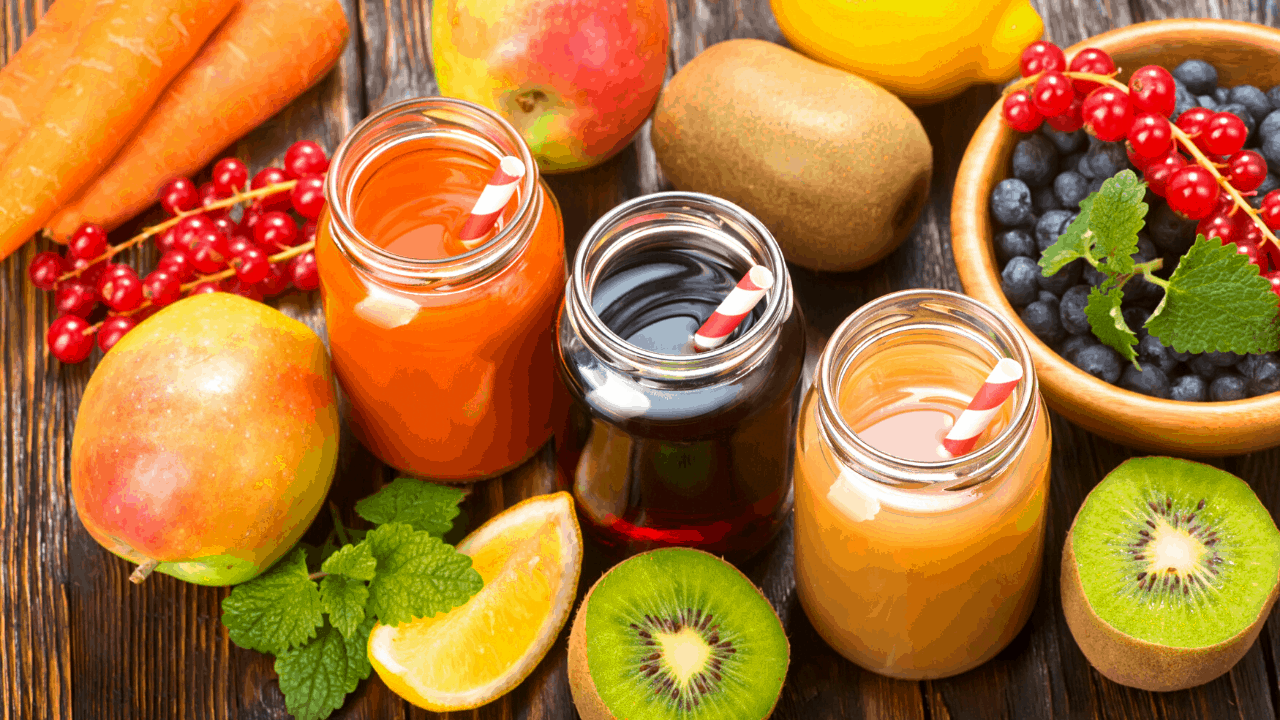
Pineapple juice for cough? This combination might seem surprising to some, but pineapple juice has been a topic of discussion regarding natural cough relief. But why is that? Is this just grasping at straws for a homeopathic remedy?
While there is no definitive scientific evidence showing that pineapple can relieve coughing, pineapples do contain a compound called bromelain that is found to be effective in providing cough relief in bronchiectasis, chronic bronchitis, pneumonia, and other similar conditions.
But is the Bromelain in pineapple juice enough? In this article, we will share what the research says about pineapple juice for cough relief. We will also share a simple pineapple juice recipe you can try.
What Does the Research Say About Pineapple Juice for Cough Relief?
The claim that pineapple juice is helpful for a cough originates from this review article. It discusses the various natural substances that help treat tuberculosis, a disease hallmarked by a severe cough.
The review is not specifically about pineapple juice for cough relief. Pineapple juice just got a single mention in regards to clearing mucus and easing cough. The review mentions that pineapple, combined with pepper, salt, and honey, can help clear mucus in the lungs in tuberculosis patients.
Some online publications have claimed that it is misleading to say that pineapple juice helps with a cough. After all, the review is about tuberculosis and not specifically about the relationship between cough and pineapple juice.
However, since all coughing is usually associated with an infection, irritant, or pathology, it can be argued that the source of the cough matters very little. Cough relief can be applied to many conditions with coughing.
So, Does Pineapple Juice Help with Cough?

As with many natural remedies, more research is needed about pineapple juice and cough. But there is supporting information indicating further research may be worthwhile.
Pineapple has Bromelain, and there is some evidence that Bromelain effectively provides relief against a cough in cases of bronchiectasis, chronic bronchitis, pneumonia, and other diseases that produce heavy amounts of sputum. If Bromelain can help relieve cough in these conditions, it’s looking like a promising component for treating cough in general.
There is another study from 2016 with two groups of people. One group was served a combination of pineapple extract called Bromelain (possibly containing Bromelain) and honey. The other group was served, only honey.
According to this study, relief from cough was observed after 30 minutes of consumption in both groups. But the group with the pineapple extract and honey showed marked improvement in more participants.
Both of these studies showed that pineapple was effective against cough. But there is a question about whether you would get enough Bromelain from pineapple juice to relieve coughing.
Bromelain is used to reduce inflammation after surgery, especially sinus surgery. It is also effective in conditions like cancer, digestive issues, joint issues, and respiratory issues. This Bromelain used in these cases is produced by pharmaceutical companies and therefore has the potency required to produce the desired effect. With pineapple juice, we are not exactly sure about how much Bromelain we are consuming.
What Other Things Can Naturally Help with Your Cough?
If you look at the recipe of the concoction in the first review article, it’s easy to see why it might have worked well. Each ingredient has been shown to help with cough relief.
The recipe includes pineapple juice, pepper, salt, and honey. We have already talked about pineapple juice. Now let’s explore the other ingredients.
1. Pepper

The review article doesn’t specify which pepper they used, but black pepper and cayenne pepper have active ingredients that help a cough.
Black pepper has piperine, which has been proven to have an antitussive action. Cayenne pepper is rich in capsaicin, which is also effective against cough. It works by suppressing the cough reflex, especially for unexplained coughs caused by unspecified irritants.
If you have an unexplained cough, oral consumption of substances rich in capsaicin like chili and pepper for four weeks might help. Capsaicin capsules are also available for purchase.
2. Honey

Honey is a well-established natural cough reliever. In fact, it may even be better than Benadryl in relieving cough. It’s no surprise why most home remedies for cough include honey.
It has a fast onset of action, too, clocking in at around 30 minutes. One to two tablespoons of honey before bed might take care of your cough if you experience sleep disturbances because of constant coughing.
But avoid giving honey to infants. They have a risk of developing infant botulism if the honey is contaminated with the Clostridium botulinum bacteria.
3. Salt

Salt, particularly saltwater, is another popular home remedy for cough. It is effective and there is a specific science behind why it works.
Salt makes the water a hypertonic solution. When you have inflammation in the throat, the cells in the throat swell due to the collection of fluid. When you gargle with warm salt water, the salt pulls out the fluid from the cells. This reduces the size of the cells, easing inflammation and pain.
The warmth of the saltwater also loosens up mucus and promotes easy expulsion.
Saltwater is, therefore a very cheap and effective solution for a cough. It also helps in preventing throat and upper respiratory tract infections.
4. Ginger

There are other natural remedies for cough too, like ginger.
Ginger has antibacterial and anti-inflammatory action. It is also helpful against painful pharyngitis.
You can prepare a simple cup of ginger tea by cutting ginger into thin slices and steeping them in water for 10-15 minutes. Add a little honey for added benefit.
5. Herbal Tea

Herbal teas can also be used for cough and sore throat. You can read more about these teas here.
Pineapple Juice Recipe For Cough

All the ingredients we have explored are naturally effective and may be readily available in your kitchen right now. You can use them to prepare your juice mix for a cough.
For this recipe, you will need:
- Honey (1-2 tbsp.)
- Pepper of your choice (1/2 tsp.)
- Pineapple juice (6 oz.)
- Salt (1/2 tsp.)
You can use a store-bought pineapple juice or prepare fresh pineapple juice at home. If you are buying pineapple juice from the store, get the 100% pure pineapple juice variants. In this recipe, you can also add water steeped with ginger or completely replace pineapple juice with ginger tea.
Combine the ingredients and drink twice a day or whenever you have a throat irritation.
Conclusion
Pineapple juice as a natural remedy for cough has little supportive research. But there is also little to no risk in trying it out to relieve your cough.
If you are going to drink pineapple juice as a natural remedy for cough, it is recommended that you mix in other ingredients known for relieving coughs, such as honey, pepper, and salt. This should give better results compared to consuming pineapple juice alone.








